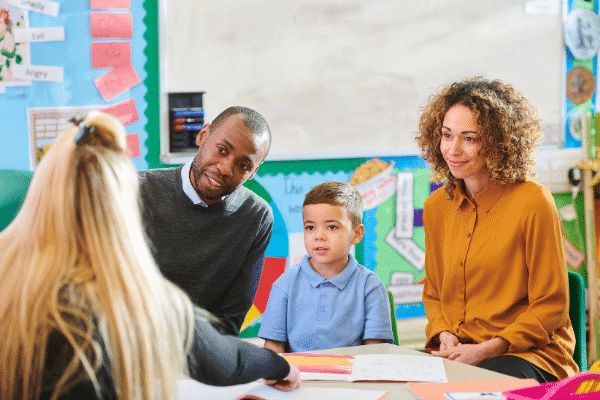After nearly a year of restrictions placed on parents, schools have finally re-opened. Parents can drop little ones off to Year 1, they can attend sporting events, and can support the schools in various ways through engaging in fundraising and the like.
Parents, carers and guardians are important stakeholders to schools, and schools need to clarify the rules or conditions of engagement with them – particularly with respect to academic matters. Currently I hear too often that parents are not trusted, they are classified as “pushy”, “helicopter parents”, or “Tiger mums and dads” for asking legitimate questions about what the school is doing to support their child’s learning.
Parents are, appropriately, the child’s foremost advocates. The question is how to achieve successful advocacy or inclusion, without being labelled or negatively construed? To answer this, start with facts.
Who knows the child best?
Parents, those who have loved and nurtured their child since birth, know more than anyone else about their child including a host of things the school cannot know: what the family has been through, the roles of both parents, the communication patterns between parents and children and interaction with any siblings. They also know the child’s likes and dislikes, some of their anxieties and what their prior learning history has been. Schools see snippets and teachers may make astute observations, but they do not have this wealth of understanding about any child, let alone 25 in a class.
School-parent communications
Other than formalised, regular, predictable communications – such as the weekly enewsletter or the Semester report, there is generally very little direct communication that schools provide parents about their child or child’s learning. Regular informal communications between teachers and parents do occur in Primary School, but with each year a child advances, communication becomes more sparce and controlled.
READ ALSO: How COVID may impact the future emotional lives of students

Startling survey results about school-parent communications
In the past three years I have surveyed parents as well as teachers about how they would feel or what they would expect if the school their child attends called them during the day. Each and every parent and teacher has said they would feel anxious and stressed. They tell me they expect that the communication would be because their child is injured or in trouble. I ask the teachers how this could be acceptable – that no parent yet (including those who are educators) thinks that the call would be directly about the child’s learning.
No one can be average
A parent of a Year 8 boy told me recently that her child had been called, “average”, “middle of the road” and “unremarkable” since Year 2. The parents assumed this meant that he was working to his academic potential. Alas, his academic potential was not actually even noticed. However, to me all this indicated was his teachers were not prepared to do anything to raise him. I asked the parent how it was possible for a child to remain average, as if his performance in Year 2 was “average”, surely his teachers had plans to help him achieve beyond this. Apparently not. He simply continued in classes for 6 years without any expectation from his teachers that he do more, or do better.
After basic assessment it was clear that this boy was underachieving and did not know it. He had never thought to push himself academically because he had never been required to do it.
What learning needs to communicate?
As evidence increases that many children can have highly particularised learning needs, parents should learn to ask questions and elicit accountability beyond formalised reports. This means any formal reports should lead to parents asking what next – what will be the role of the teacher in assisting the child to achieve the next learning goal. The expectation that teachers do this is actually role-modelled on the government’s own education websites. If this is done, then teachers will start to assist children in their particularised learning plans.
Children should be with parents when there are meetings with teachers
Parents therefore should seek information and follow up. They should also bring their children with them when there are parent-teacher meetings and in such meetings, they should have the teacher articulate what their goals are for their child including how the teacher will measure achievement towards those goals. However, everything is a joint pact as parents must support teacher efforts. Hence, parents should ask, “What can we do to support what you are doing?”
In this way the family and the child’s teachers can place the interests of the child foremost and work towards common goals, rather than what can feel like being asked to trust the school whilst being excluded.
READ ALSO: Brutal rituals of hazing won’t go away — and unis are increasingly likely to be held responsible
Link up with us!
Indian Link News website: Save our website as a bookmark
Indian Link E-Newsletter: Subscribe to our weekly e-newsletter
Indian Link Newspaper: Click here to read our e-paper
Indian Link app: Download our app from Apple’s App Store or Google Play and subscribe to the alerts
Facebook: facebook.com/IndianLinkAustralia
Twitter: @indian_link
Instagram: @indianlink
LinkedIn: linkedin.com/IndianLinkMediaGroup





